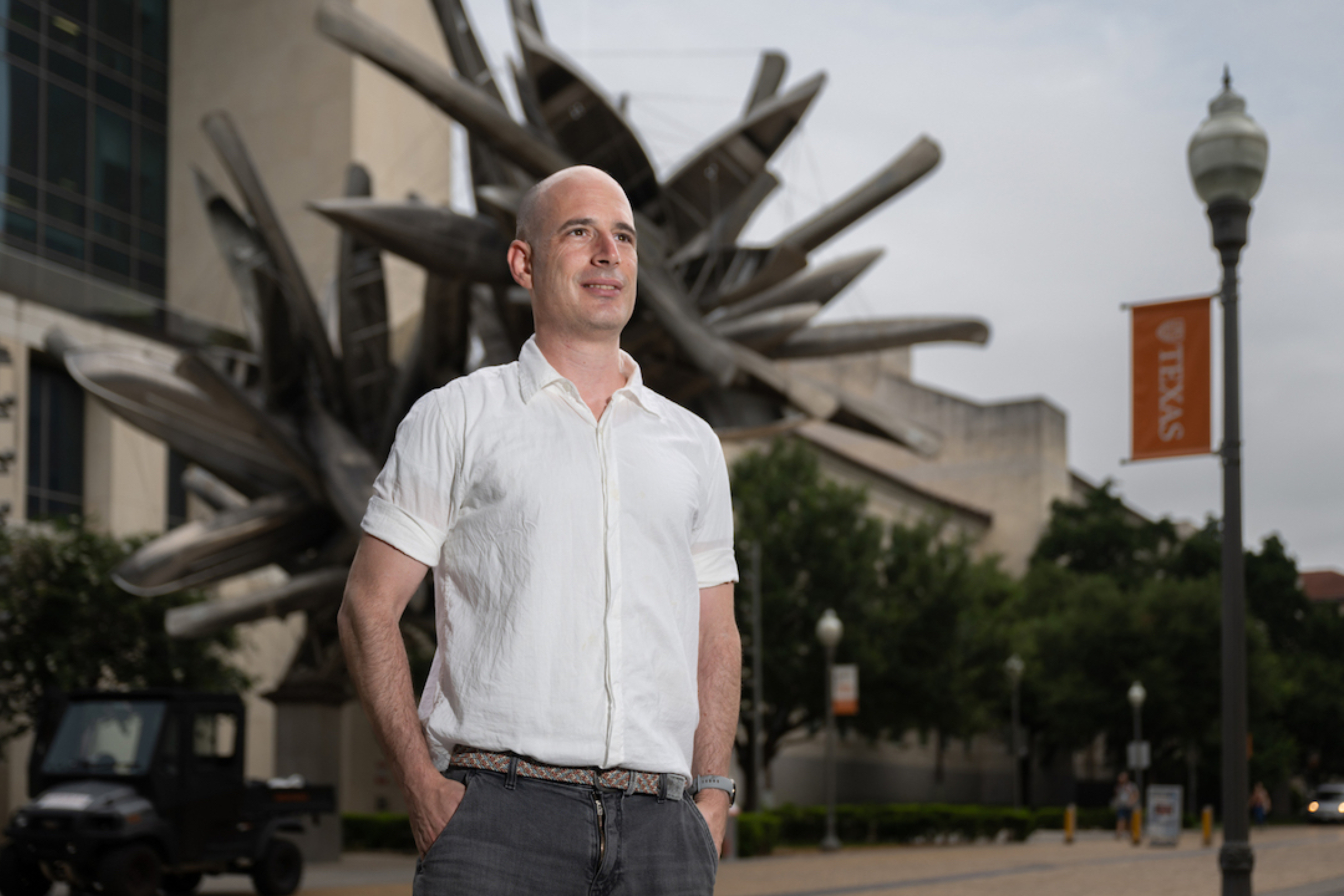Why is it that the same genetic makeup can have dramatically different impacts on health and evolution in males and females? Arbel Harpak, Ph.D., is seeking to find out.
Harpak, an assistant professor in Dell Med’s Department of Population Health and in the Department of Integrative Biology at the College of Natural Sciences, was selected as one of 22 researchers to join the 2024-28 Pew Scholars Program in the Biomedical Sciences. The program funds early-career scientists in exploring “some of the most pressing questions in human health and medicine.”

Arbel Harpak, Ph.D.
Sex is a key factor in evolution, health and disease. But we know little about how sex differences come to be — even as they are stark, such as in the higher incidence of autism spectrum disorder for men or autoimmune disease for women. Supported by the Pew scholarship, Harpak’s lab will pursue new directions for understanding how biological sex matters in genetics and evolution.
Q&A With Harpak:
What does the Harpak Lab do, and how will the Pew scholarship support your work over the next four years?
My group studies how genetic variation evolves: how it arises through molecular processes and how it is later shaped by natural selection. We are also interested in the upshot of this process — how genetic variation maps into trait variation, which has an impact on things like disease susceptibility, behavior and fitness.
Answers to these questions have been proposed for centuries. However, the incredible scope of data gathered over the last two decades revolutionized what can be learned from genetic variation and has inspired new questions. Work in the lab involves mathematical modeling and genomic data science.
Thanks to the Pew scholarship, the group will develop new models for the drivers of sex differences and scour large databases to test predictions of these models. This work could improve our ability to predict sex-specific genetic risk of disease and advance our understanding of the role of sex in evolution.
Mentorship is an important part of your work. How have your mentors shaped your role as a leader now?
My master’s was probably the first time I started to seriously think about a career in research, mostly thanks to Guy Sella, who made the introduction to population genetics extremely exciting. My Ph.D. advisor at Stanford, Jonathan Pritchard, shaped me as a scientist and has been a role model for me.
Following my Ph.D., I spent three enriching years as a Simons Foundation fellow and a postdoc at Columbia University working with Molly Przeworsky. I can’t quite put into words how invaluable her mentorship has been (and still is) for me. She set the bar incredibly high in terms of rigor, braveness, honesty and collegiality. She also gave invaluable support during years that have been personally difficult.
I realized that the greatest impact I could have on the field would be through facilitating, supporting, advising and mentoring future generations.
Arbel Harpak, Ph.D.
As I began planning my own lab, reflections about my mentorship experiences translated into my own goals as a group leader. I realized that the greatest impact I could have on the field would be through facilitating, supporting, advising and mentoring future generations.
Honors like the Pew scholarship are ultimately the result of the enthusiasm and dedication of the students and postdocs I’ve been lucky to have work in the lab. My second favorite part of the job is when trainees persevere through challenges and come up at the other end with innovative solutions and answers; my absolute favorite part is when they come up with good questions.
In 200 words or less, share a bit about what first inspired you to become a scientist.
I grew up in Israel. My family moved around quite a bit but always kept a stone’s throw away from the beaches of the Mediterranean Sea, where I spent a lot of my time. I was very much into math and into wildlife from a young age but hadn’t really thought of being an academic; no one in my family was, and playing outdoors (Did I mention the beach yet?) filled up most of my schedule nicely.
After saving up money to go to school, I started my bachelor studies in mathematics and philosophy at the Hebrew University of Jerusalem and later on added physics to the mix. I deeply enjoyed my math studies. I never knew — and probably never would have known without my math education — how it feels to deeply and fundamentally understand one’s object of study. This feeling was, and continues to be, a source of true joy for me.